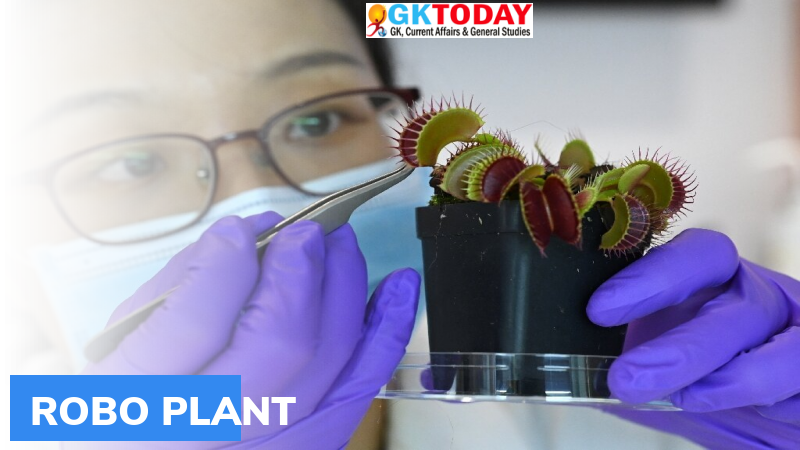Robo Plant: Technology to interact with plants
The scientists from Singapore have developed a technology to interact with plants. The technology has been named as “Robo Plant”.
About the Robo Plant Technology
- The technology helps to control the plants using smart phone applications.
- In future, this technology can be further used to enable farmers to detect diseases in plants. The plants can tell farmers that they are hit by diseases through this technology.
- The Singapore scientists achieved in building the technology by linking plants to electrodes. These electrodes were capable of monitoring weak electrical pulses that are naturally emitted by green plants.
How did the scientist build the technology?
The scientists used the technology to trigger a Venus flytrap to snap its jaws when a button on a smart phone is pressed. One of the jaws of the plant was then connected to a robotic arm that enabled the contraption to pick up a piece of wire (that was half a milli metre thick) and catch a small falling object.
Venus Flytrap
It is a carnivorous plant. It is native to subtropical wetlands that are located in the East Coast of United States. It catches prey such as insects with a trapping structure. When the prey touches a hair, the plant prepares to close. The IUCN has put the plant under “Vulnerable” status.
Electrical Signals in Plants
The Electrical Signals in plants were first revealed in insectivorous plants by Burdon Sanderson in 1873 and by Darwin in 1875. Plants exhibit several methods of delivering electrical signals. The four commonly used propagation methods are as follows:
- Action Potential
- Variation Potential
- Local Electric Potential
- Systematic Potential
Plants also have the capability to sense and respond to the environment. They react to chemicals, light, gravity, moisture, infections, oxygen, infection, temperature, parasite infestation, sound, physical disruption and touch.
Month: Current Affairs - April, 2021


